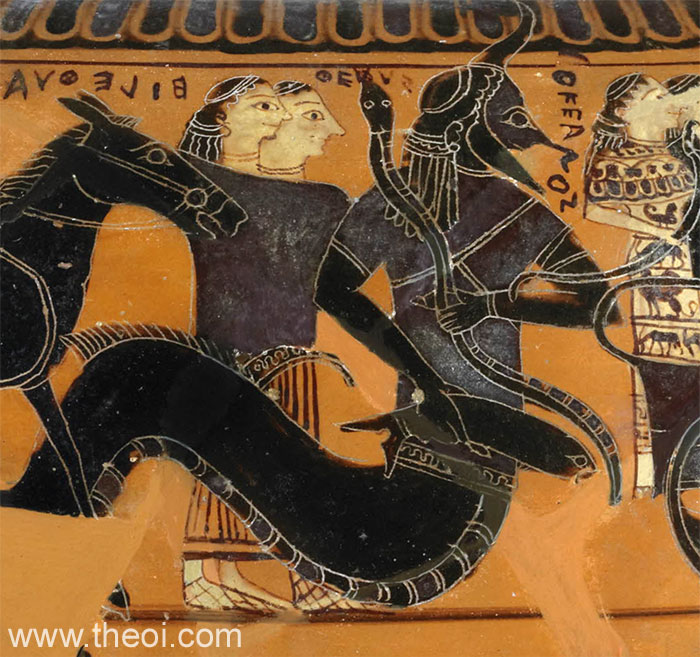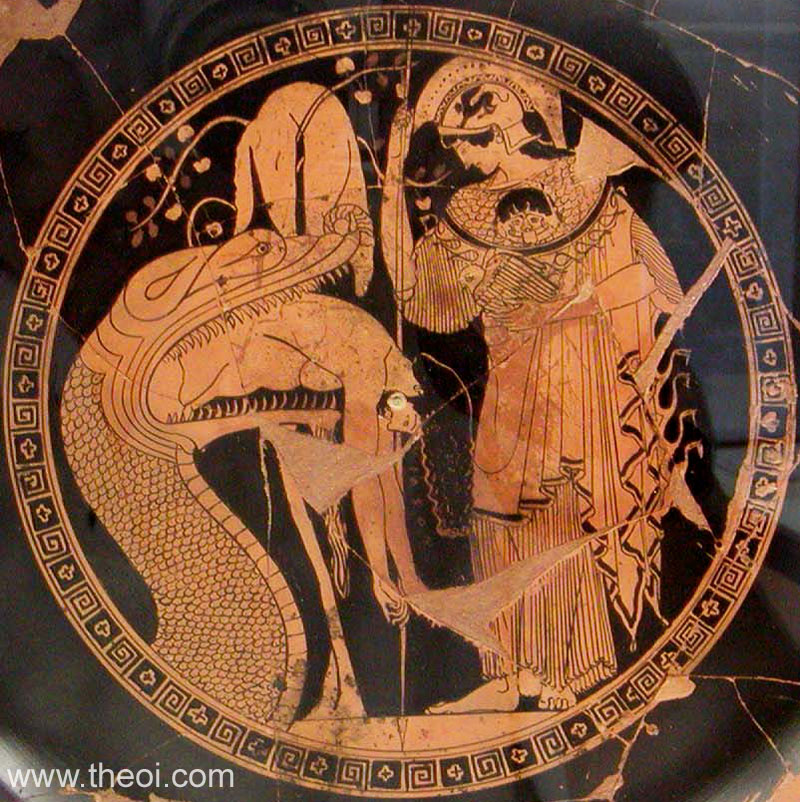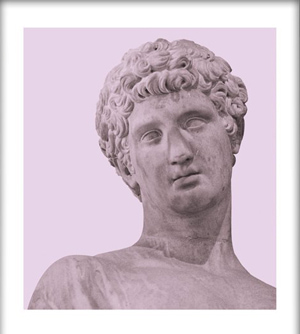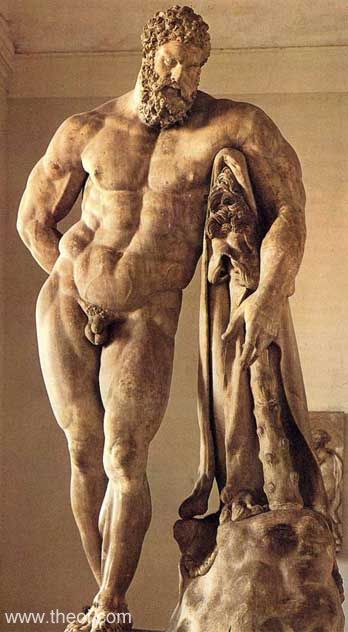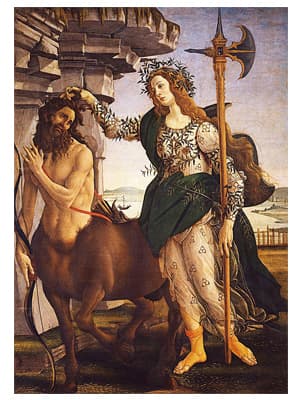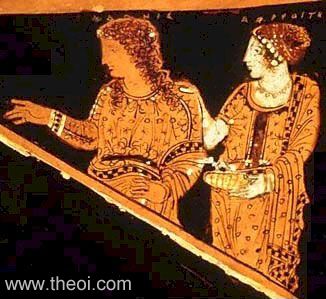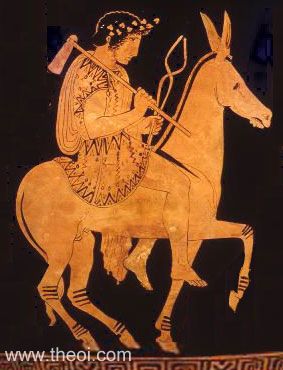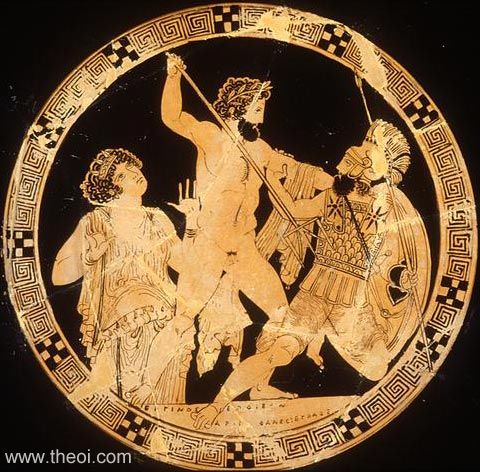To say that, Ares, the god of war, had a bad reputation is a gross understatement. His insatiable thirst for violence and bloodshed made him feared by mortal beings and despised by his fellow deities.
Zeus, his father, wasn’t particularly fond of him either. He preferred his daughter Athena, the goddess of strategic warfare, wisdom, and courage, who had a good head on her shoulders.
So, what does Ares mean to those whose paths crossed his? This piece explores some of the ancient stories about the god of war you’ve likely not heard before. Read on.
What Does Ares Mean to Aphrodite: A Love Story
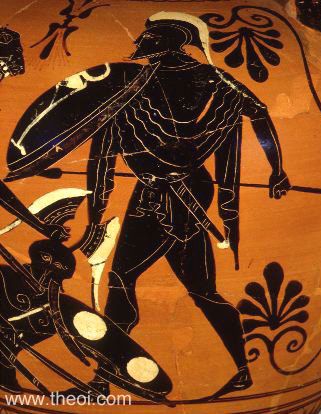
You’ll be surprised to learn that Ares was not rejected by all the deities. There was a goddess who was particularly drawn to his impetuous style and his ill-intentioned way of being the god of war.
Her name was Aphrodite, the goddess of love and beauty. Ares had the perfect athletic build and stunning good looks. This was in complete contrast to her husband Hephaestus, the god of forges who not only had a rude appearance but was also a cripple.
In the eyes of Aphrodite, his shortcomings didn’t end there even though he worked hard to provide for his wife’s needs. He built her magnificent palaces and fashioned alluring jewels to win her over. But the pursuit of all these things also meant that he was spending immense amounts of time at his powerful forge inside the Etna volcano. This left the blazing goddess of love starving for some attention.
One day she heard the arrival of Ares. He had just returned from one of his conquests and was covered in blood. She took one look at him and felt a shiver down her spine. She steadied herself, walked towards him, and offered to clean up all the blood.
Ares was taken aback by the gesture. This was the first time an inhabitant of Olympus had ever made such an advance towards him. This marked the beginning of Aphrodite’s ritual seduction towards him. Before long, the two were in a heated affair that bore them four children: Phobos, Eros, Deimos, and Harmonia.
Ares and Athena: The Ultimate Sibling Rivalry
The role that Ares plays in Greek mythology is rather small. This has a lot to do with Athena being perceived as superior. As such, the two siblings were bitter rivals and were always in constant competition.
Athena represented a lot of what the general attitude and beliefs of the ancient Greek people deemed as appropriate. She was a well-rounded individual who was calm, intelligent, and highly skilled at warfare.
She represented the best of both worlds: A fierce warrior and a dedicated scholar. It’s no surprise then that she was naturally the favorite of the Greek people. Ares, on the other hand, was the epitome of what not to be.
The Trojan War
Needless to say, the few appearances Ares does make in Greek mythology revolve around conflict. The most notable of these was the Trojan War.
Unfortunately for him, he found himself on the wrong side of the battlefield. In the beginning, however, he was fairly neutral, but after a little convincing from Aphrodite, he joined the side of the Trojans.
This was in spite of his initial promise to his mother Hera and sister Athena that he would fight on the side of the Archaeans. During the battle, when Diomedes saw Ares and his men on the battlefield, he pulled back out of fear.
However, Athena ordered him and his men to launch a full-scale attack on Ares and on her guidance, managed to impale the god of war. Ares, who was now heavily wounded, had no choice but to flee from the battlefield and tend to his injuries.
As a result, the Trojan forces also retreated since they knew that without Ares, they could not win the battle. During the war, the Trojans slew Ares’ son Ascalaphus, and when he caught wind of this, the god of war was eager to switch sides and fight for the Archaeans.
Unfortunately, Zeus had forbidden the Olympians from taking part in the war. Later, he had a change of heart and allowed the deities to take an active role in the conflict.
The first thing Ares did the moment he got the opportunity was to attack Athena in retaliation for the previous injury he had sustained. But, Athena again bested her brother by hurling an enormous boulder at him.
Ares and the Giants
Another ancient Greek mythology story involving Ares details his interaction with Otus and Ephialtes. They are sometimes referred to as the Aloadae.
Legend has it, the two brothers came across the god of war and decided to kidnap him and imprison him in a giant bronze jar for an entire lunar year. They would only let Ares go if the goddess Artemis agreed to marry one of them.
Soon enough, she made an appearance and true to their word; they set the god of war free. However, they began to argue shortly after as to which one of them would marry Artemis. In the process, they accidentally impaled each other with their spears when Artemis transformed herself into a deer and attempted to flee the scene.
The Descendants of Ares
More often than not, when Ares went into battle, he always fought side by side with his children. The apples didn’t fall too far from this tree. They included: Phobos Deimos and Enyalios. Together they represented fear, terror and discord.
The female warrior tribe known as the Amazons are said to be direct descendants of the god Ares. The most famous example is Hippolyta, who became the Amazon queen after Ares presented her with a magical girdle that symbolizes strength and authority.
What’s more, the Amazonian sacred shrines were also said to be guarded by the birds of Ares. They had arrow-like feathers and bore a striking resemblance to the man-eating Stymphalian birds that were slain by Heracles.
The Takeaway
Given the different encounters of the god of war had with different figures in ancient Greek mythology, what does Ares mean to those who encountered him? Well, to sum it all up, he was a deity driven purely by his passions.
He had a violent personality and battle-lust that could not be tamed. He doesn’t feature in many ancient stories, but when he does, you can be certain that violence soon ensues.
Check out our blog for more Greek mythology stories.
